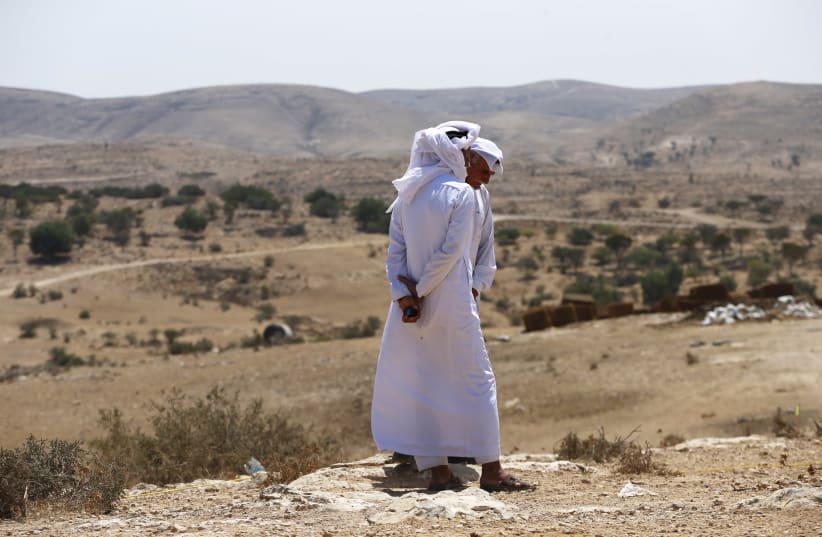The development of new industrial zones in the south could catalyze integration of the Bedouin population into the national workforce, according to a plan being developed by new Economy and Industry Minister Amir Peretz.
Peretz, who was given responsibility for the Authority for Development and Settlement of the Bedouin in the Negev last week by the Knesset, held his first meeting with representatives of the Bedouin community on Thursday.
Developing large industrial zones is a key step to increase rates of Bedouin employment in the Negev, Peretz told the meeting’s participants, by attracting large companies to the region and the creation of many new job opportunities.
“Industrial areas will represent a major lever for employment and to integrate the Bedouin sector into Israeli society,” said Peretz.
According to data published by the Central Bureau of Statistics, the employment rate among Bedouin women residing in the Negev is only 25%, despite a major increase in recent years and representing less than one-third of the national female employment rate of 76%.
The employment rate for Bedouin men stands at just 65%, significantly below the national average of 84%.
The recent coronavirus outbreak has also hit the Negev Bedouin population particularly hard, with 11.7% of Negev Bedouin claiming income support during March and April, compared to 5% among the wider Arab-Israeli sector and 3.55% among the general population.
Key to integrating Bedouin community into the workforce will be rebuilding trust between the community and the government, Peretz said, after several years where confidence has been eroded between the Negev Bedouin population and government agencies.
Peretz was likely referring to a series of clashes in recent years between authorities and Bedouin citizens living in unrecognized villages, in some cases leading to demolition orders.
“If we do things right, we can make the next generation a part of the Israeli human economy,” said the Labor Party leader. “Otherwise, the neglect and deterioration that will lead to the separation of Bedouin society and Israeli society will continue.”
At the same time as supporting greater employment, Peretz emphasized that there will not be any compromise on issues of violence and crime within Bedouin society.
